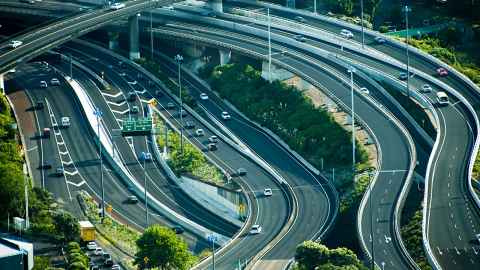Another election sweetener’s bitter aftertaste
10 August 2023
Opinion: We should reject the ‘transport fatalism’ of the too often repeated idea that the notion that what works everywhere else to cut congestion and driving stress for some reason 'won’t work here' says Kirsty Wild.

Three years ago, I led the first local research for Waka Kotahi on the impact of our transport system on the mental health of New Zealanders. The findings were strikingly similar to overseas studies: driving is the ‘highest stress’ way to get around a city, and we are doing more of it. Our transport patterns are likely contributing to rising levels of psychological distress in our communities.
We need to talk more about the stress of driving, and its impact on our lives and families. Not only because it’s making our lives worse, but also because it’s keeping us stuck in a cycle of expensive ‘temporary fix’ roading projects that relieve congestion for a short period, but are making it worse in the longer run. Election promises of new roads are the petrol station chocolate bar for the exhausted commuter: a temporary ‘pick me up’ that quickly leaves us more tired than before.
Transport behaviour is remarkably predictable. When a new ‘congestion-busting’ road opens, some people will ditch public transport, and many existing motorists will drive more often. Then, after a few years, with new drivers on the road, and everyone driving more, congestion is often worse than before. The OECD points to consistent evidence that the widening or opening of new roads and highways quickly leads to an increase in travel times.
We know building new roads is largely a waste of money, but we do it because new roads are incredibly popular, and politicians know this. They are popular not because we are naïve but because we are stressed.
All around the world, continued highway expansion has been shown to lead to worse congestion, longer commutes, more emissions, less and less space for trees and parks, and more air and noise pollution in our neighbourhoods
Aucklanders, for instance, now spend the equivalent of a month a year sitting in traffic. Research shows that at 20 minutes commuting by car, our trip satisfaction drops; and at 40 minutes (which is pretty common now), life satisfaction drops. This same research shows that at the 40-minute mark, your commute is likely having a not insignificant impact on your health and family relationships: with less time for sleep, meal preparation, family time, and rest. Commutes longer than 40 minutes are associated with poorer physical and mental health, higher levels of sick leave, and increased rates of divorce.
We get excited about new roading projects because we are sick and tired of soul-sucking commutes, of circling the block looking for shrinking parking spaces, of it getting worse every year – which it is. Quick-fix roading solutions are popular because many of us have experienced the temporary relief of a new lane on a congested motorway, and with such low levels of investment in public and active transport over the decades, many of us have lost faith in our capacity to get around our cities in any way other than by driving.
But we should reject the ‘transport fatalism’ that seems to have become so entrenched here: the notion that what works everywhere else to cut congestion and driving stress for some reason ‘won’t work here’. Let’s talk instead about what we have to lose from endlessly repeating the 'road expansion-congestion-road expansion' cycle.
More roads consistently means more of the same, only worse. All around the world, continued highway expansion has been shown to lead to worse congestion, longer commutes, more emissions, less and less space for trees and parks, and more air and noise pollution in our neighbourhoods.
The opposite is true for cities that are investing heavily in active and public transport. Driving less (whatever the type of vehicle) leads to better physical and mental health, and higher transport satisfaction. New roads and expanded highways have historically been a reliable election sweetener, but it is increasingly evident they leave a very bitter aftertaste.
Dr Kirsty Wild is an honorary senior research fellow at the Faculty of Medical and Health Sciences.
This article reflects the opinion of the author and not necessarily the views of Waipapa Taumata Rau University of Auckland.
This article was first published on Newsroom, Another election sweetener’s bitter aftertaste, 10 August, 2023
Media contact
Margo White I Research communications editor
Mob 021 926 408
Email margo.white@auckland.ac.nz